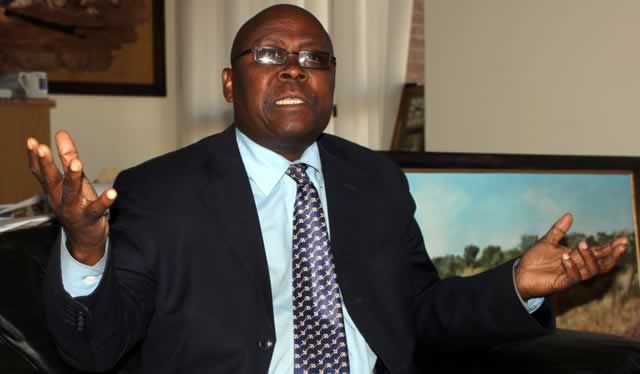Government reaffirms commitment to rural electrification

Kudzai Chikiwa, Chronicle Reporter
THE Government has officially commissioned the Makokomba Primary School electrification project in Umguza District, Matabeleland North Province.
Officiating at the ceremony on Friday, the Minister of State for Matabeleland North Province, Ambassador Cain Mathema, highlighted the Government’s unwavering efforts to create an enabling environment for the development of the grid network in both rural and urban areas.
The project was facilitated by the Rural Electrification Fund (REF) which was established by the Government through an Act of Parliament with the specific mandate to facilitate rapid and equitable electrification of rural areas in Zimbabwe, thereby promoting rural development and upliftment of the lifestyles of rural Zimbabweans.
“Our Government has always recognised the importance of energy in general and electricity in particular as a vehicle for economic and social development of our country,” said Ambassador Mathema.
“Government has continued to support the REF programme over the years. Pursuant to this, the Government launched the National Energy Policy (NEP) for Zimbabwe, which seeks to ensure that all people in Zimbabwe have access to adequate, reliable, least cost and environmentally friendly and sustainable energy services.”
In its effort to embrace rural electrification, Ambassador Mathema said, the Fund has not been spared from economic and other challenges faced by the country in general over the past few years, chief of the challenges being lack of funding.
‘’The other major challenge faced by the Rural Electrification Fund is inadequate funding. The 6 percent electrification levy that REF gets through electricity sales and fiscal allocation by Government is not adequate to accelerate the programme or to sustain the momentum already gained by the programme,’’ he said.
Ambassador Mathema said another challenge in the energy sector is lack of adequate generation capacity in the region in general and in Zimbabwe in particular.
‘’However, our Government in collaboration with other SADC countries is exploring all avenues to alleviate the severe power shortage in the region through the expansion of existing power stations, development of new power stations, sharing excess energy among the SAPP (Southern Africa Power pool) member states and promotion of energy conservation,’’ he said.
Ambassador Mathema encouraged the Umguza community to take advantage of the electricity and embrace development. He said the community should shun theft and vandalism on the electricity grid infrastructure, in particular conductors and transformers.
The Rural Electrification Fund, he said, has electrified 9 159 rural institutions countrywide, using both grid and solar technologies.
“In Matabeleland North Province alone, REF has electrified 787 institutions, of which 112 are in Umguza District. These include 40 primary schools out of 46. All 13 secondary schools, eight rural health centres out of eight, three chiefs homesteads, three Government extension offices, 12 small scale farms and 33 other institutions like villages, business centres and mobile base stations,” said Ambassador Mathema.
He said the fund is extending the line by 11km to Mazizini Primary School.
REF board member and Matabeleland North provincial administrator Ms Latiso Dlamini hailed the development.
“Guided by the people centred thrust of the Government and its new dispensation, REF has remained consistent with the mandate to ensure that electricity is extended to rural areas,” she said.
‘’Electricity is the engine of economic growth and social development. The Rural Electrification Fund has made significant contributions in providing electricity infrastructure to rural communities as a way to engender this growth and development since its inception in 2002.”
Traditional leaders, civil servants and villagers were among those that attended the event.—@tamary98.











Comments